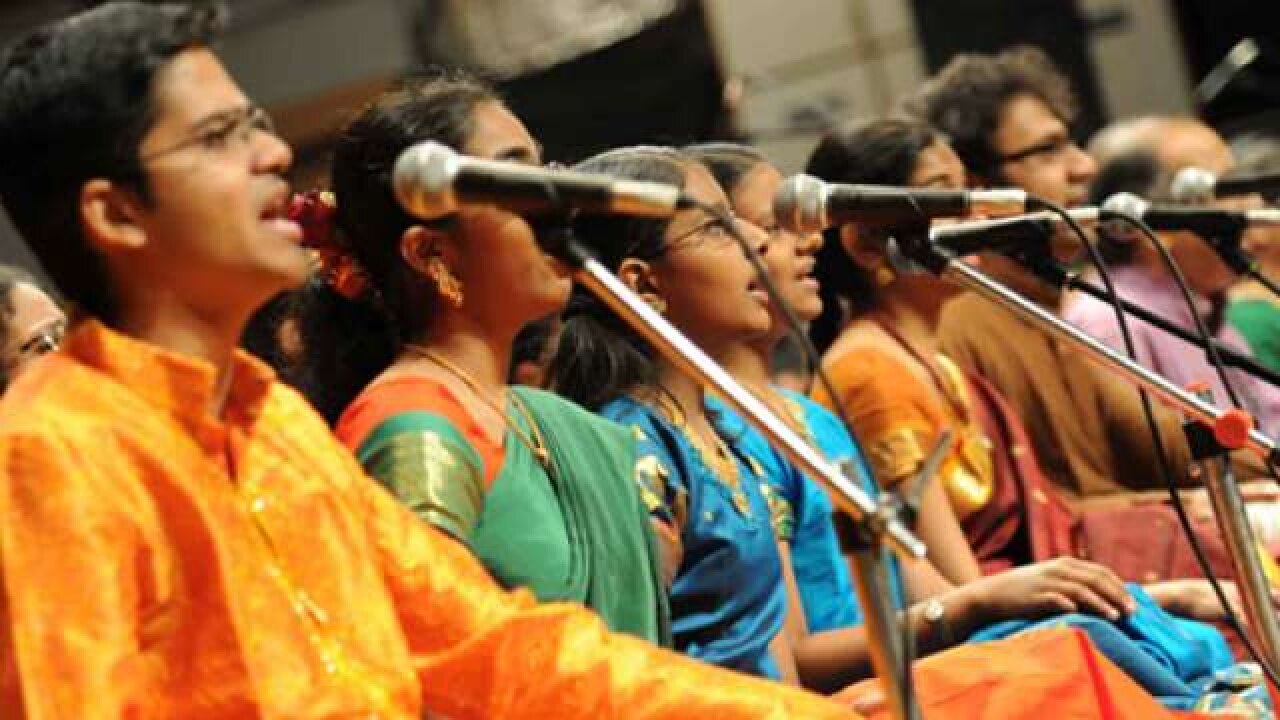
In the Madras Presidency of the 1940s, the matinee idol of the Mylapore Mamis was a young Carnatic musician whose natty apparel, debonair crop, gold chain and diamond earstuds spelt style. Women flocked to his concerts in their best Kanchipuram silks, brightest jewels, jasmine venis, heady perfumes, and listened with beating hearts and starstruck eyes. The singer had something to confer an even greater status on him: a college degree. He was always GN Balasubramiam BA (Hons), the graduate bhagavata! And he was fluent in English!
In today’s Carnatic music world however, academic distinction is the norm. We forget that vocalist Sanjay Subrahmanyan is a chartered accountant by qualification, take for granted that gold medallist IIT Blue S Sowmya, should be as adept at tossing off research papers on “Microwave Enhanced Reactions in Carbohydrate Chemistry”, as in dealing with Todi raga. Canadian Nisha Rajagopalan has not only made Chennai her home but given up a promising IT career for music. Others leave jobs abroad to return to the land where they can have live interactions with their music gurus.
The profiles of gen-next musicians make you wonder how they find time for music, perform widely, tour abroad. One of them has dropped references in his profile to academic achievements though. “Redundant,” says he. Not always easy to do when you see how fledgling singer Sahana Vasudevan was felicitated by Barack Obama for her high school mathematics research project and has a minor planet named after her.
Another top-ranking postgraduate has forgotten her biochemistry in the daily tussle with swaras and talas. “Did I ever work in TCS?” asks a third, almost disbelievingly. While some do straddle two worlds, as Swarnarethas does, heading his department in a software company, and Meghana Moorthy as Design Engineer, INTEL, Bangalore, many more have burnt their office boats to swim in the uncertain seas of classical music.
Talent abounds. And the commitment of young practitioners is unquestionable. Schoolgoers sacrifice much to excel in both studies and music. Many aspirants take up only jobs which ensure time for music. Women refuse to marry once highly sought-after grooms abroad because they want to live in the Carnatic music world. So the future of Carnatic music should be assured of class and quality. Not so. Why?
Youngsters cannot make a living with concerts alone. Often (s)he is expected to perform for free. Some brazen organizers want to be paid for giving a platform to the youngster. Revenue generating activities like teaching, recording and fusion work cut into your time for practice, reflection, and evolution in the art. Sometimes they lead you astray. Singing for Bharatanatyam offers a lucrative market, but that road often shuts the door on concert performance.
Cinema has swallowed two fabulous classical flautists, leaving no trace of them on the concert platform.
Classical music was once compared to worship. Now it is closer to the circus. Performers exhibit more confusion than confidence. Afraid of rejection, youngsters try every trick in the trade to woo audiences. Shunning risks — the privilege of youth — they take refuge in conventions, banal and trivial, and forget tradition, deep and dynamic. They don’t dare to try subtlety, they must be brash. Such compromises make them what they don’t want to be — shallow instead of profound, and forget why they took up a classical art.
Maybe they should remember that GNB’s innovations dazzled fans, but he broke convention only to enrich tradition. His stardom came not only from the way he looked, but from the way he sang. Classy, always.